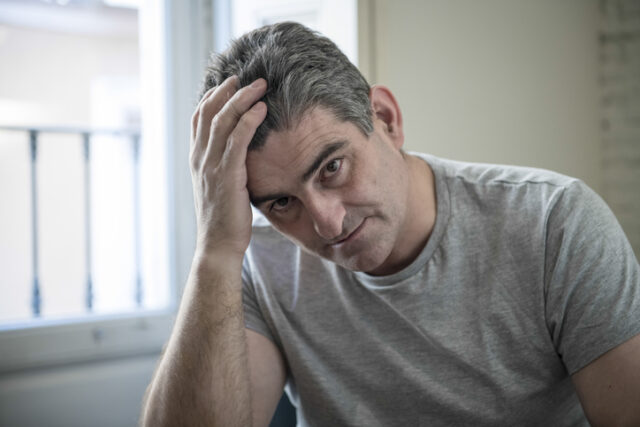Some things are easy to overlook when you’re younger.

You shake them off, laugh them off, or tell yourself it’s not that deep. However, as the years roll on, your tolerance definitely drops. You start noticing what drains you, what never sits quite right, and what you’re no longer willing to pretend doesn’t affect you. These are just some of the things that tend to get harder to put up with and take in your stride the older and more emotionally honest you get.
1. Forced positivity when something clearly hurts

When you’re younger, you might’ve smiled through things just to avoid making people uncomfortable. However, eventually, pretending something doesn’t hurt starts to feel like a betrayal of yourself. You realise that optimism isn’t always strength—sometimes, naming the pain is. Being expected to stay upbeat when you’re grieving, struggling, or just plain tired becomes more frustrating than comforting. You’d rather have truth than toxic cheerfulness.
2. Relationships that only go one way

There comes a point when chasing, overexplaining, or always being the one to initiate starts to wear thin. You notice who only calls when they need something. You clock who never asks how you are, and you begin to quietly pull back. That doesn’t make you bitter—it proves that you’re dedicated to preserving your energy. Grown-up love, friendship or otherwise, has to go both ways.
3. People who treat kindness like weakness

At some point, it becomes clear that being calm, patient, or forgiving doesn’t mean you’re a doormat. And it gets harder and harder to stay quiet when people mistake compassion for permission to walk all over you. You realise that protecting your peace sometimes means letting go of people who only ever responded to your softness with entitlement.
4. Jobs that take and take and take

In your early years, it’s easy to buy into the idea that work should be your whole identity. That staying late is admirable. That burnout is just part of building something. However, as you get older, that trade-off starts to feel emptier. You want meaning, not martyrdom. As a result, you stop pretending that climbing a ladder is worth it if it costs you your health or relationships.
5. Apologies that are really just damage control

You know the kind—where someone says sorry because they got caught, not because they care. Or they say the words, but nothing changes after. When you’re younger, that might’ve been enough. But eventually, you crave sincerity over surface. Genuine accountability starts to mean more to you than politeness. You stop being soothed by empty phrases.
6. Conversations that feel like competitions

There’s nothing more draining than someone who treats every discussion like a stage to perform on. When you’re young, you might’ve played along. But with time, you crave more ease, more depth, more mutual interest. You want to feel seen, not managed. Heard, not outshined. Conversations should be a connection point, not a scoreboard.
7. People who never outgrow their emotional immaturity

It gets harder to watch grown adults throw tantrums, avoid hard conversations, or blame everyone else for their actions. When you were younger, you might’ve rationalised it, made excuses, or tried to help them grow. Eventually, though, you realise it’s not your job. You start protecting your time, and your nervous system, by stepping away from emotional chaos that refuses to grow up.
8. Pretending to enjoy things that drain you

Fake laughter. Awkward events. Obligations that leave you feeling flattened. When you’re younger, you go along with it all to avoid rocking the boat. However, at some point, you’d rather stay home in silence than force another strained smile through another draining interaction. Your energy becomes something you guard instead of giving away just to keep everyone else comfortable.
9. Watching people refuse to change when they clearly need to

It’s hard to see someone you care about stuck in a loop. The self-sabotage, the blame, the endless excuses. When you’re younger, you might try to save them. In the end, you learn the painful truth: people have to want to change. You can’t do it for them. Watching them make the same choices over and over starts to feel less like sadness and more like emotional distance setting in.
10. Being expected to stay silent to keep the peace

Whether it’s at work, in family dynamics, or even long-standing friendships, staying quiet to avoid conflict becomes harder the more you realise how much it costs you. Swallowing your voice over and over eventually leads to resentment. There comes a point where discomfort is better than dishonesty. And you stop apologising for saying what needed to be said.
11. People who only show up when it’s convenient

When you were younger, it might’ve felt normal to keep people around just because of history. But as time passes, patterns become clearer. The ones who disappear when things get real, then reappear when the dust settles—it starts to sting more. You realise that real relationships aren’t just about who’s around when it’s fun. They’re about who sticks around when it’s messy.
12. Constantly having to prove yourself

Early on, it’s easy to get caught in the trap of always trying to earn respect, approval, validation. After a while, the need to explain who you are, what you’ve done, or why you matter becomes soul-tiring. You start to understand that the people who truly see you never needed convincing in the first place. Proving yourself becomes something you stop doing—for other people or for yourself.
13. Realising how long you tolerated things you didn’t deserve

As you reflect on old friendships, past jobs, or former versions of yourself, the weight of what you allowed starts to hit. Not in a way that brings shame—but in a way that makes you more protective of your peace moving forward. You stop beating yourself up for it, but you carry that awareness like a quiet vow—to never abandon yourself like that again.



